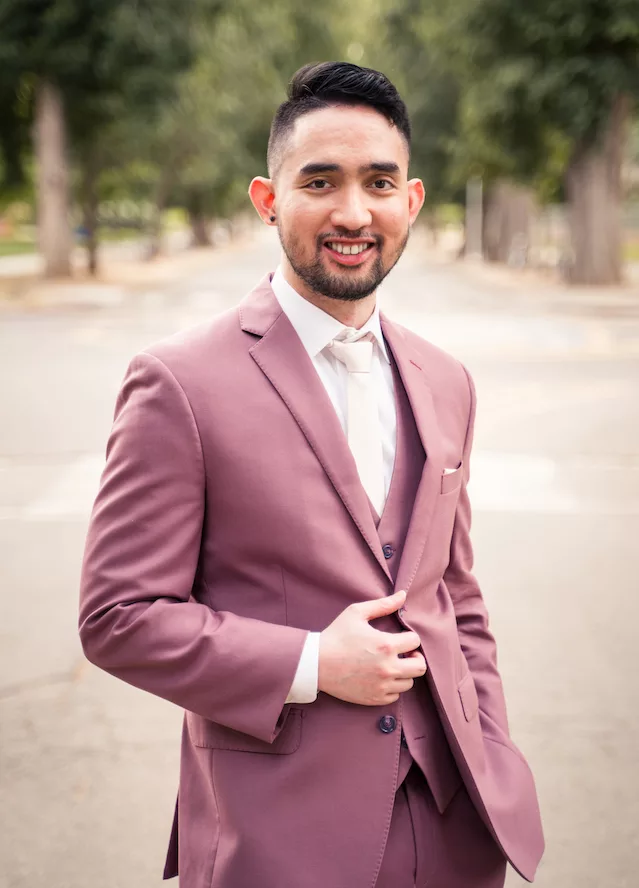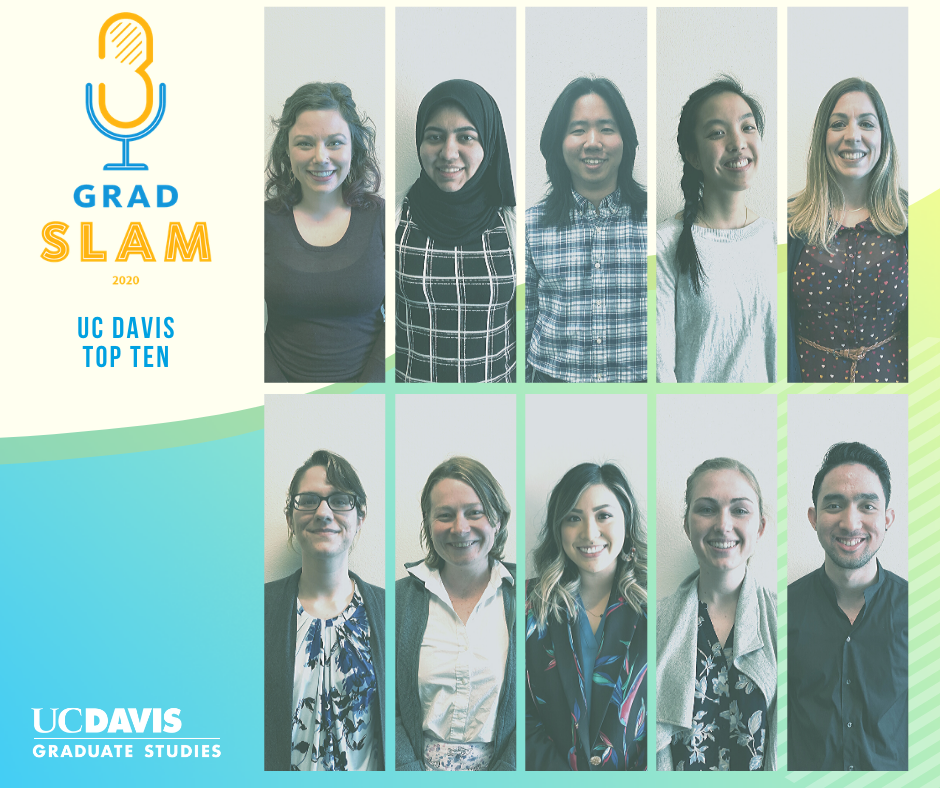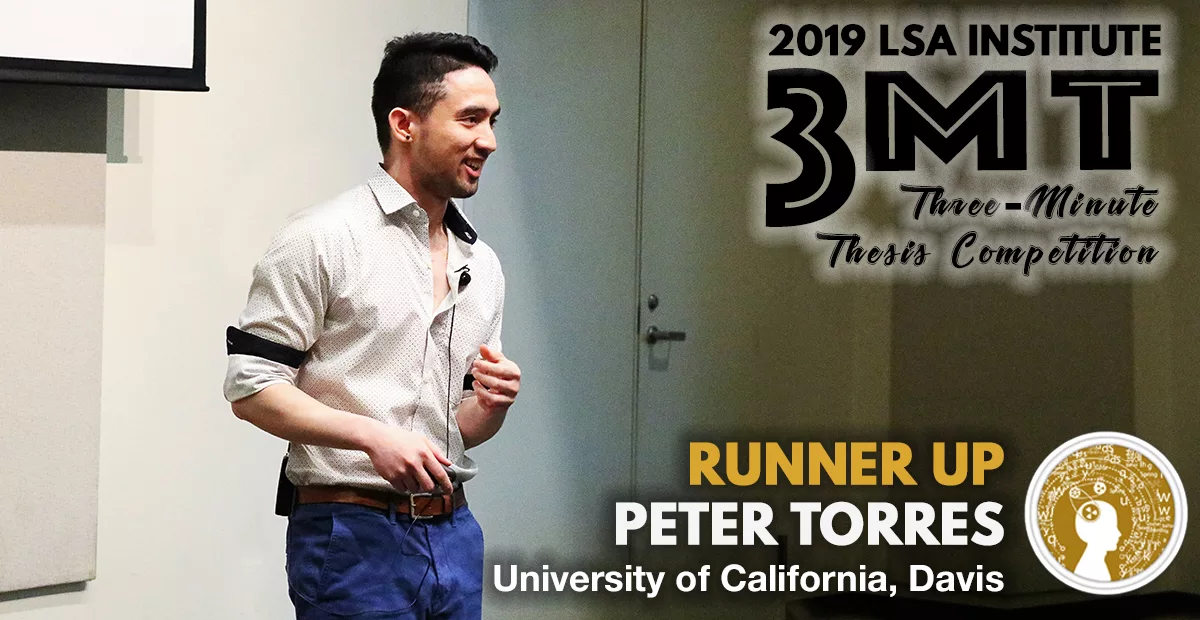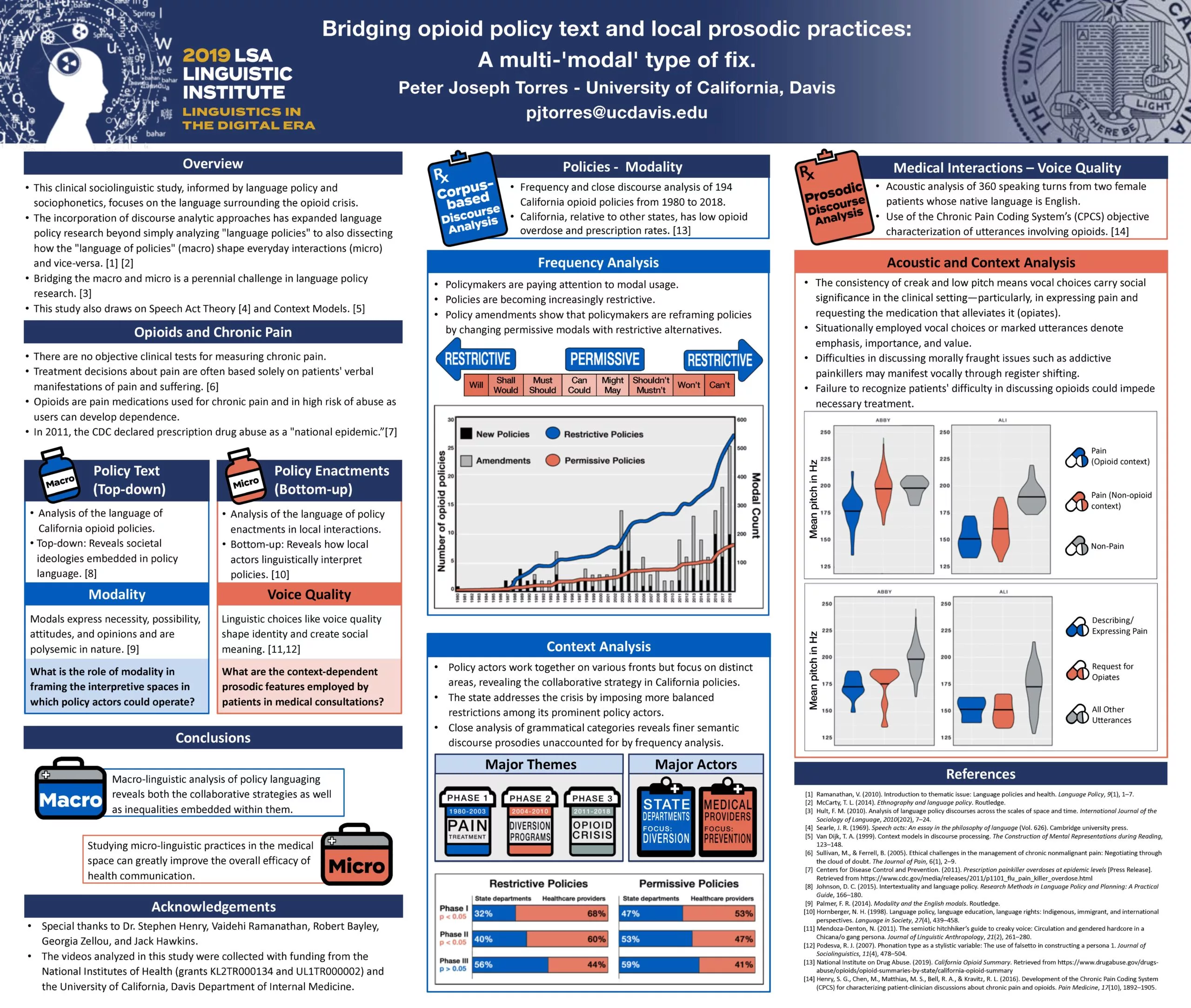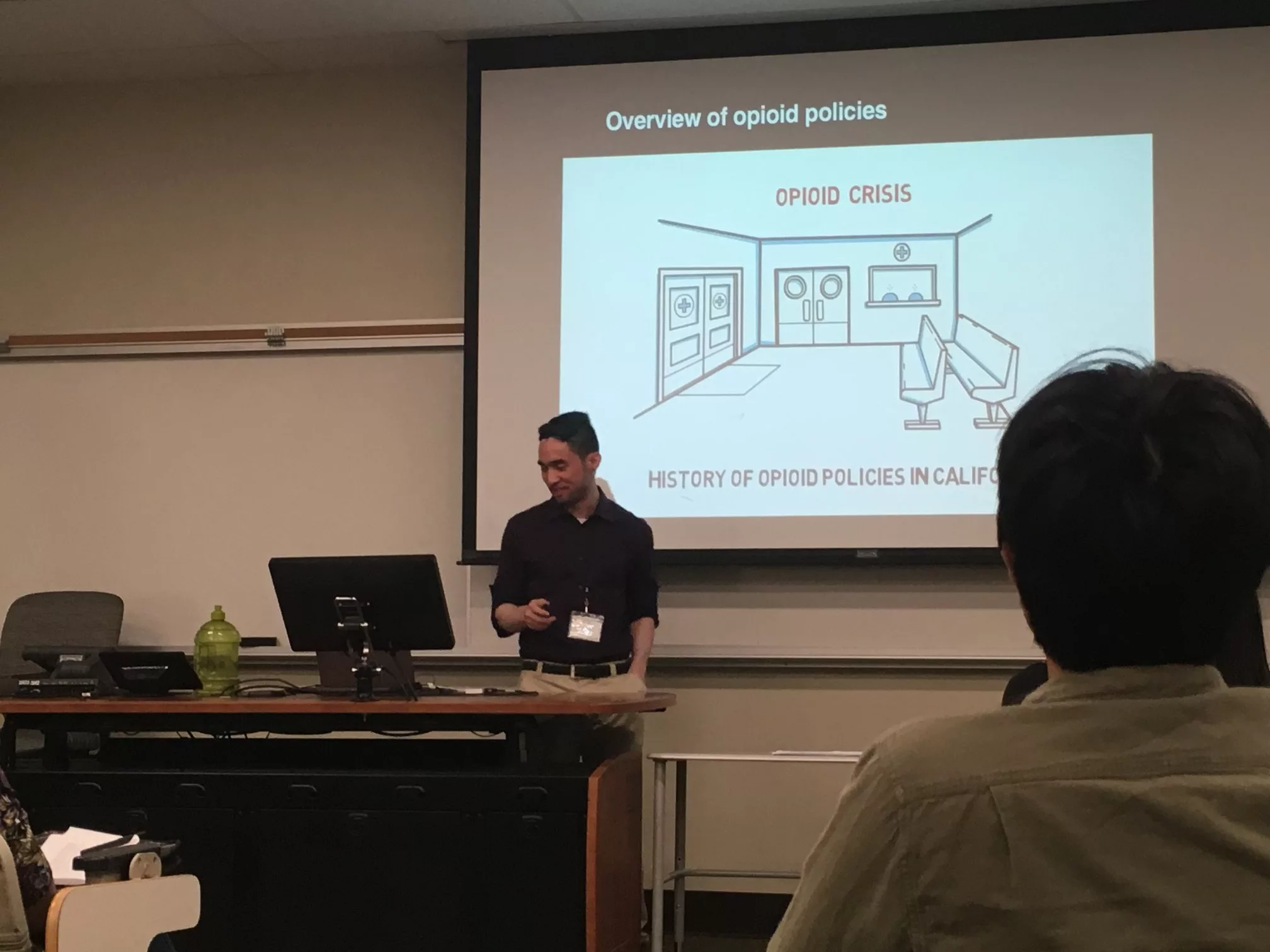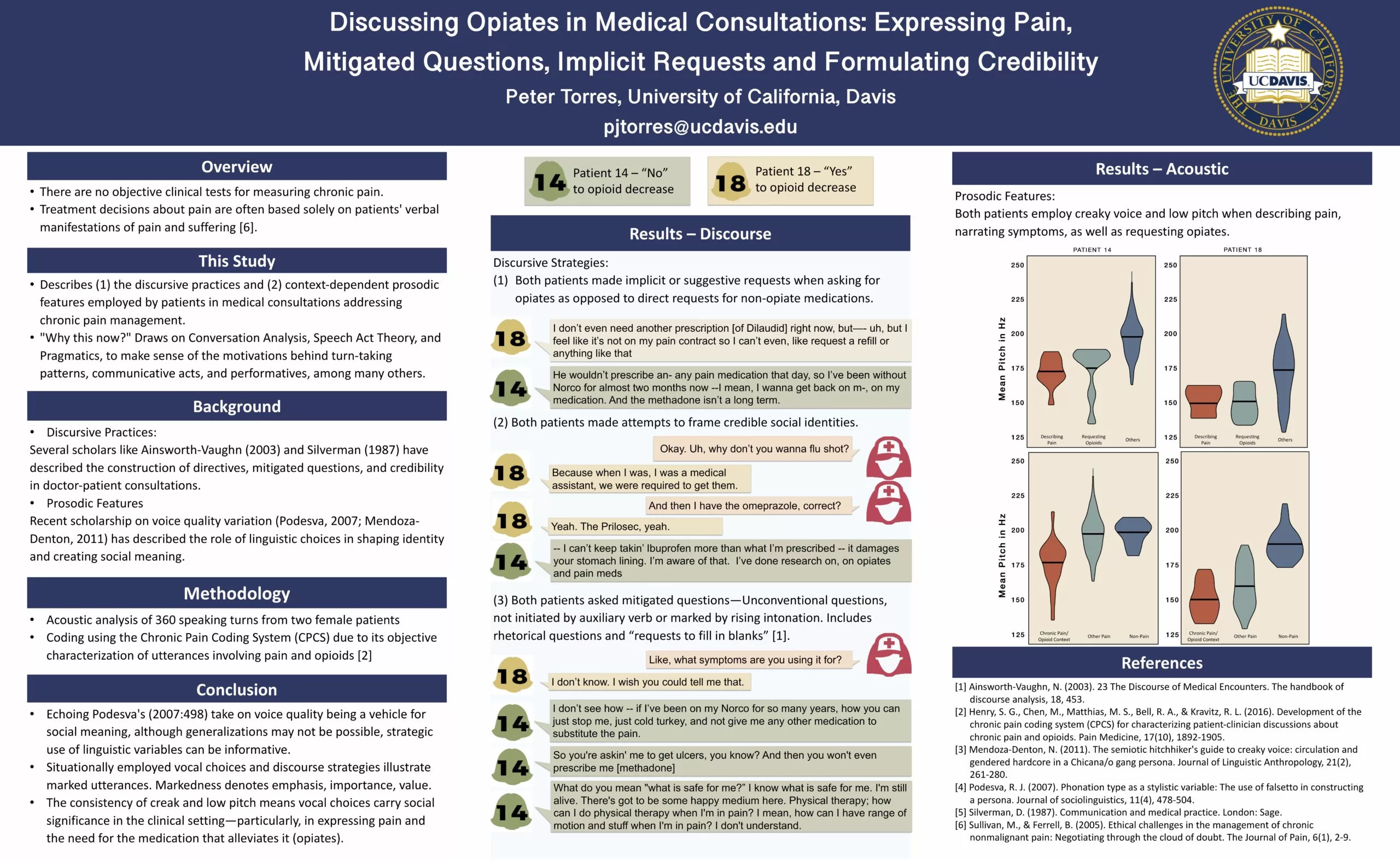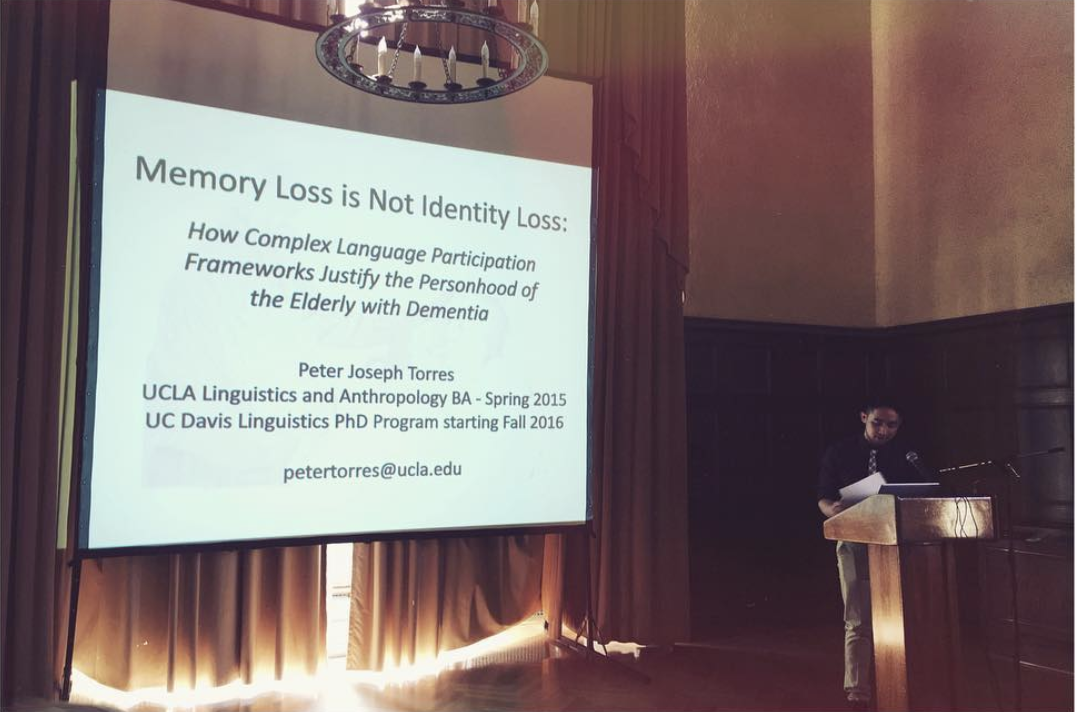Shifting Linguistic Landscapes: English Proficiency and Perceptions Among Displaced Ukrainian Academics After 2022
2025 American Association for Applied Linguistics (AAAL) Annual Meeting
"Everyone Taking Opioids Must”: Physicians’ Use of Broadening in Enacting Policies
2024 International Health Humanities Consortium Conference
Creighton University
Disrupting Normalcy in Opioid Discourse: Exploring Markedness in Patients' Voice Quality
Contesting Normalcy Ideologies: Policies Around Disabilities, Refugees, and Opioids Colloqium
2024 American Association for Applied Linguistics (AAAL) Annual Meeting
[Recording]
Discourse analytic approaches in bridging policies with local implementations
97th LSA Annual Meeting
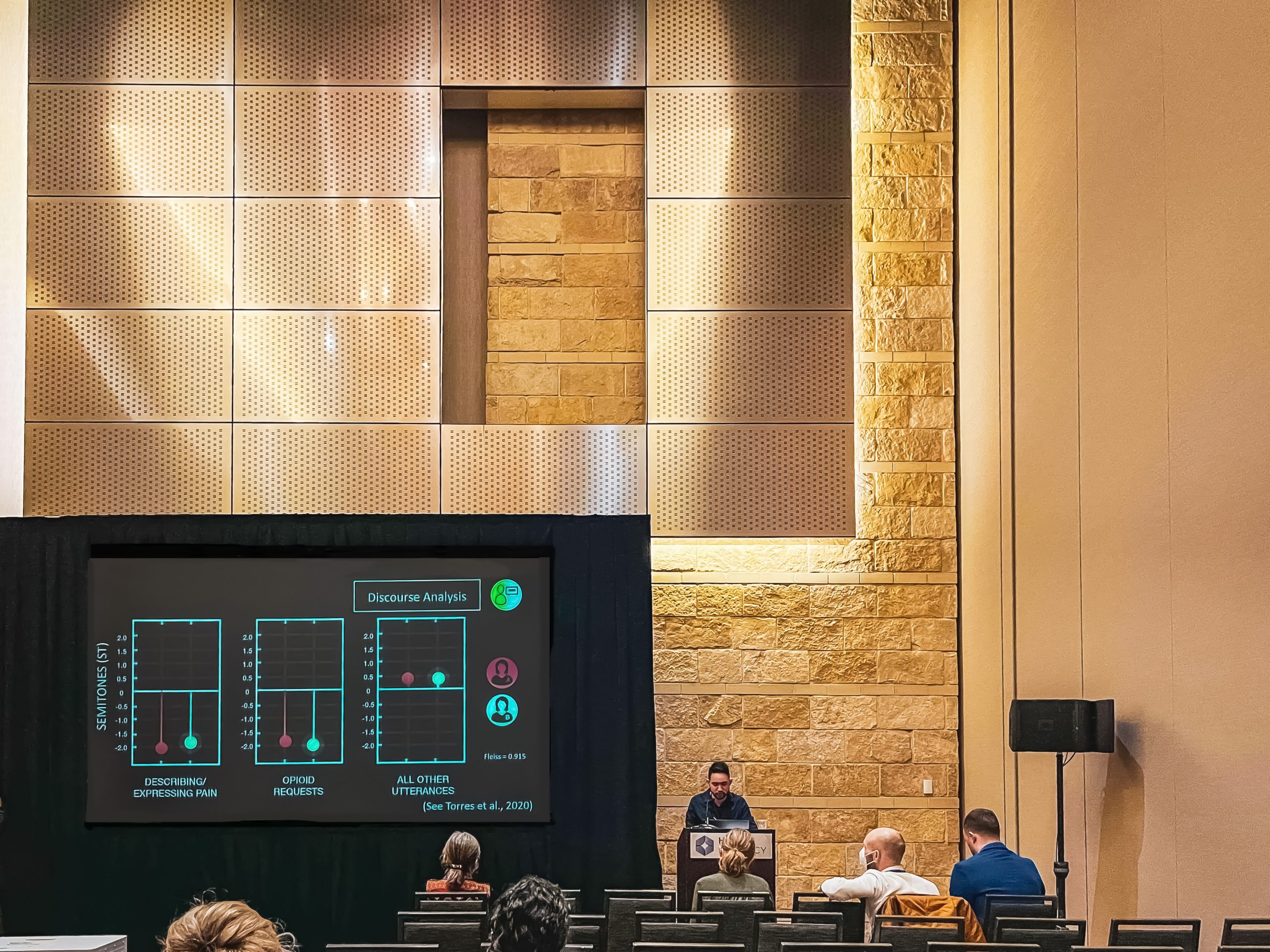
Jan 6-9, 2022
📍Washington DC
“Creak and low pitch as prosodic features for misery and pain”
June 4, 2021
📍Virtual Conference
"Webinar: Publishing in the Language and Public Policy Section of Language”
Webinar
Linguistic Society of America (LSA)
March 20-23, 2021
📍Virtual Conference
“Analyzing modality in policy text: How California policies respond to the opioid crisis”
Conference Presentation
2021 American Association for Applied Linguistics (AAAL) Annual Meeting
March 3, 2021
📍Virtual Conference
“The language of opioid policies”
Short Presentation/ Lightning Talk
2020/2021 Advancing Pain Relief Symposium
January 7-10, 2021
📍Virtual Conference
"‘Under the influence’ of opioid policies: configuring interpretive spaces through language"
Conference/Panel Presentation
2021 Linguistic Society of America Annual Meeting
Dec 5, 2020
📍 Twitter
(Virtual Conference)
“One too many plural(s): Taglish code-switching”
Presentation
2020 Brazilian Association of Linguistics' Linguistweets (First International Twitter Conference on Linguistics)
April 7, 2020
📍Davis, California
"We can, we should, we must, and we will fight the opioid crisis”
July 17, 2019
📍Davis, California
"If I may, shall we address pain or should we focus on addiction: A talk about the language of opioid policies."
Contest/Presentation
2019 Linguistic Society of America's 3MT (Three-Minute Thesis Competition)
🧷 Runner Up
July 14, 2019
📍Davis, California
"Enacting opioid policies in text and speech: A multi-'modal' type of fix"
Conference Poster
2019 LSA Linguistic Institute
June 26, 2019
📍Davis, California
“Modality in policy text: How California addressed the opioid crisis"
May 24, 2019
📍Davis, California
"When heroin was a hero and solutions created problems: The discourse of opioid policy enactments"
Conference Presentation
6th Annual UC Davis Symposium on Language Research
November 14-18, 2018
📍San Jose Convention Center
(Remote Participation)
"Immigrant speech in healthcare: Ideologies and intelligibility"
Conference Presentation
2018 American Anthropological Association Annual (AAA) Meeting
May 25, 2018
📍University of California, Davis
"'On a Scale of 1 to 10, How much pain are you in?' Conversations on chronic pain and controlled substances"
Contest/Presentation
5th Annual UC Davis Symposium on Language Research: Most Innovative Panel
🧷 Runner Up
April 6, 2018
📍University of California, Los Angeles
"Register shift as a pragmatic resource: Manifesting pain in medical consultations"
Conference Presentation
24th Annual Conference on Language, Interaction, and Culture (CLIC)
March 10, 2018
📍Georgetown University
"Discussing opiates in medical consultations: Expressing pain, mitigated questions, implicit requests and formulating credibility"
Conference Poster
Georgetown University Roundtable on Languages and Linguistics (GURT): Approaches to Discourse
February 8, 2018
📍Davis, California
"Low pitch and creaky voice as linguistic resources: Describing pain, narrating symptoms, and requesting for opiates in medical interactions"
Contest/Presentation
UC Davis Gradslam
April 22-23, 2016
📍University of California, Los Angeles
"Memory loss is not identity loss: The complex language participation frameworks of the elderly with dementia"
Conference/Presentation
22nd Annual Conference on Language, Interaction, and Culture (CLIC)
